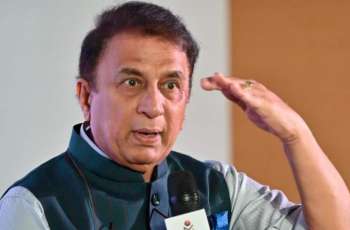The event, originally postponed for a year due to China's stringent zero-Covid measures, has drawn over 12,000 participants representing 45 nations and territories from Asia and the Middle East, all converging on the eastern city to compete across 40 different sports.
HANGZHOU: (UrduPoint/Pakistan Point News-Sept 23rd, 2023) Chinese President Xi Jinping is set to inaugurate the Asian Games in a grand ceremony on Saturday (today), launching a massive sporting event that boasts a larger athlete turnout compared to the Olympics.
The event, originally postponed for a year due to China's stringent zero-Covid measures, has drawn over 12,000 participants representing 45 nations and territories from Asia and the middle East, all converging on the eastern city to compete across 40 different sports.
President Xi will officially kick off the Games in one of China's most prosperous regions, with distinguished guests, including Syrian President Bashar al-Assad, in attendance. However, the prospect of persistent drizzle threatens to dampen the occasion.
Assad, making his first visit to China since the Syrian conflict began in 2011, will join leaders from ally nations like Cambodia, Kuwait, and Nepal at Hangzhou's Olympic stadium, according to state media.
This sporting extravaganza is poised to be China's post-pandemic display of soft power, with political and business leaders from across Asia gracing the fully-packed stadium, as highlighted by Jung-Woo Lee, a sport policy expert at the University of Edinburgh.
Nevertheless, the Games have already encountered a dispute between New Delhi and Beijing, resulting in India's sports minister canceling his trip to Hangzhou. The disagreement arose after three female martial arts fighters from the Indian state of Arunachal Pradesh claimed they were denied accreditation, a contention disputed by China.
Arunachal Pradesh is a region hotly contested by Beijing, which refers to it as "South Tibet."
China's reputation as a sporting hub suffered during the initial three years of the pandemic, with snap lockdowns and travel restrictions leading to the cancellation of most international events in the country.
Host nation China is strongly favored to lead the medals tally, boasting a nearly 900-member delegation, while Japan and South Korea vie for second place. Notably, North Korea is making its return to the global sporting arena after nearly three years of isolation.
Competitions will span various sports, from athletics, swimming, and football to unique regional specialties such as dragon boat racing, Chinese martial arts (wushu), and kabaddi, a popular contact sport on the Indian subcontinent.
Additionally, nine sports, including boxing, breakdancing, and tennis, will serve as Asia qualifiers for the upcoming Paris Olympics. A sprinkling of world and Olympic champions adds to the excitement, featuring athletes like India's Neeraj Chopra in javelin, Qatari high jumper Mutaz Barshim, and Chinese swimming sensations Qin Haiyang and Zhang Yufei.
Wei Jizhong, honorary life vice-president of the Olympic Council of Asia, emphasized the Games' inclusivity, stating, "We are open to all. This means our Games are not concentrated only for elite sportspeople." He added that when athletes from developing countries win medals, it fosters happiness, government support, and the growth of sports in their nations.
The Games will unfold across 54 venues, including 14 newly constructed facilities, primarily in Hangzhou but extending to cities as distant as Wenzhou, located 300 kilometers (180 miles) south.
The centerpiece of the event is the "Big Lotus" Olympic stadium, capable of holding up to 80,000 spectators, where athletics and the opening and closing ceremonies will dazzle the audience.
Hangzhou, a city with a population of 12 million, situated an hour's bullet train ride from Shanghai, is renowned as China's unofficial tech hub. The Games will showcase cutting-edge technology, including driverless buses, robotic dogs, and facial recognition systems.
Furthermore, this marks the first-ever cashless Games, with Hangzhou embracing a cashless economy. Organizers are also emphasizing their commitment to the environment, with a low-carbon policy in place to power venues with"green" electricity.



